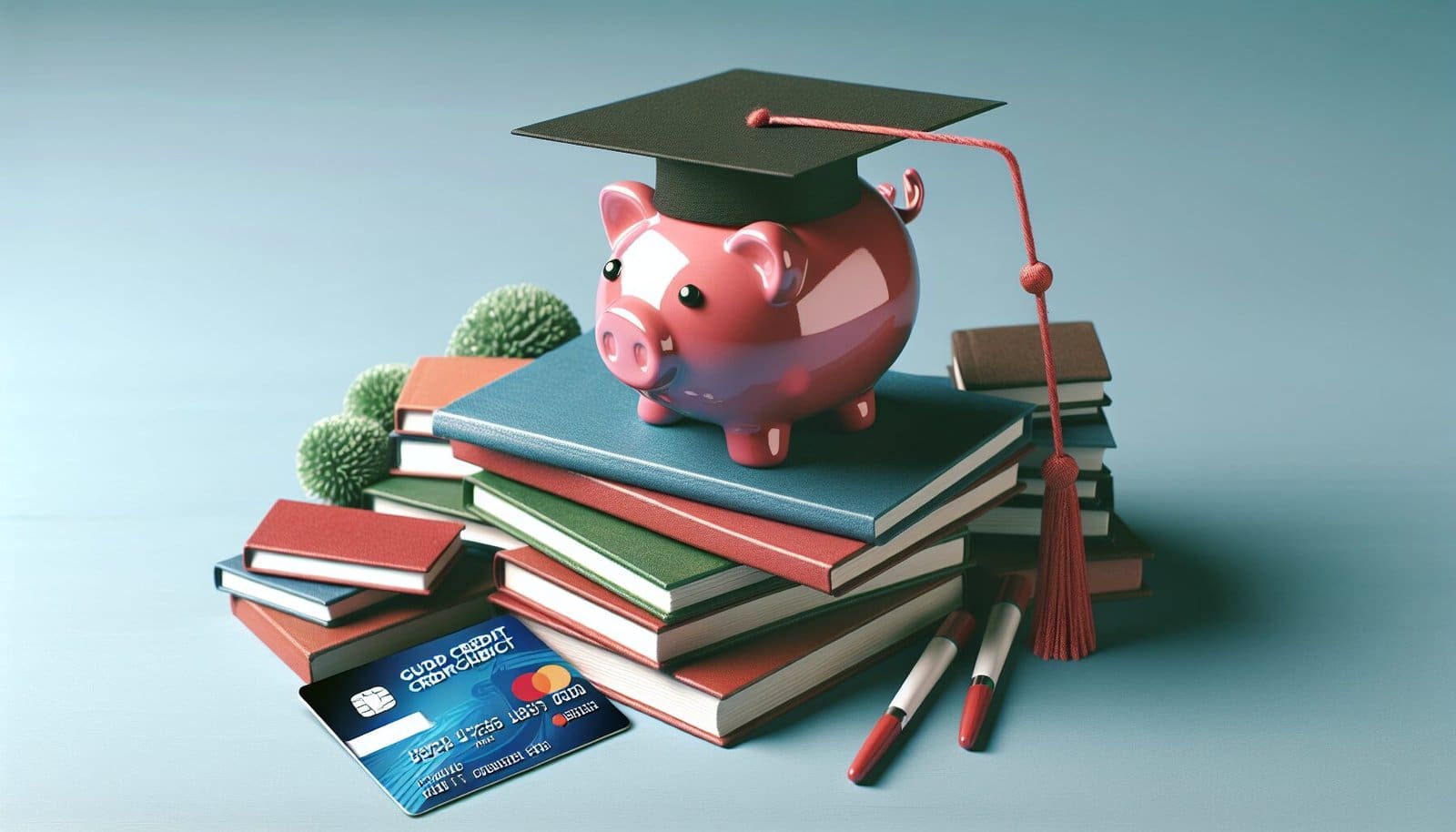In today's world, having a solid credit history is crucial for financial success. However, for students who don't have access to a credit card, it can feel like an uphill battle. But fear not! This comprehensive guide is here to help you navigate the realm of credit-building without relying on a credit card. From exploring alternative options to understanding the importance of responsible financial habits, you'll discover the keys to building credit as a student. So let's embark on this credit-building journey together and set you on the path to financial stability.
Get Started With Building Credit
1. Understanding Credit and Its Importance
What is credit?
Credit refers to the trust that lenders have in your ability to repay the money you borrow. It is a measure of your financial reliability and reflects your past borrowing and repayment history. Lenders use your credit information to evaluate the risk involved in lending you money, determining whether you can be trusted to repay it on time.
Why is building credit important for students?
Building credit is crucial for students as it opens doors to various financial opportunities in the future, such as buying a car, renting an apartment, or obtaining a mortgage. A good credit history allows you to qualify for better interest rates and terms when borrowing money. It also demonstrates responsible financial behavior and showcases your ability to manage debt effectively, which is attractive to future employers and landlords.
The benefits of having a good credit score
Having a good credit score brings several advantages. It allows you to access better interest rates and terms when applying for loans or credit cards. A higher credit score can make it easier to get approved for rental applications or secure favorable terms for a mortgage. Additionally, a good credit score can positively impact your insurance premiums, help you qualify for utility services without a deposit, and even have an effect on employment opportunities.
2. Alternative Ways to Establish Credit
Secured Credit Cards
Secured credit cards are an excellent tool for students to establish credit. These cards require a security deposit to be made, which becomes the credit limit for the card. By using a secured credit card responsibly, you can build a positive credit history.
Credit Builder Loans
Credit builder loans are specifically designed to help individuals build or rebuild credit. These loans work by withholding the loan amount until it is fully repaid. As you make regular payments, your positive payment history is reported to credit bureaus, improving your credit score.
Authorized User Account
As an authorized user on someone else's credit card account, you can benefit from their positive credit history. The account holder's responsible credit behavior, such as timely payments and low credit utilization, can boost your credit score.
Student Loans
Student loans can be an effective way to establish credit. Making timely payments on your student loans can demonstrate your ability to manage debt and positively impact your credit history.
Rent and Utility Payments
Certain services allow you to report your rent and utility payments to credit bureaus. By opting for this reporting, you can build credit by showing a history of on-time payments for these essential expenses.
Cell Phone Bills
Similar to rent and utility payments, you can also utilize your cell phone bill to build credit. Some credit reporting services include cell phone payment history in credit reports, providing an opportunity to demonstrate responsible payment habits.

Explore Credit Building Methods
3. Building Credit through Secured Credit Cards
What is a secured credit card?
A secured credit card requires a security deposit that serves as collateral against the credit line. This deposit minimizes the risk for the credit card issuer, making it accessible to individuals with limited or no credit history.
How does a secured credit card work?
Once you obtain a secured credit card, you can use it like any other credit card. Your usage and payment behavior will be reported to credit bureaus, allowing you to build credit history over time.
Choosing the right secured credit card
When selecting a secured credit card, it's essential to consider factors such as annual fees, interest rates, and whether the card reports to all three major credit bureaus. Look for a secured credit card that fits your needs and offers the best terms for building credit.
Tips to responsibly use a secured credit card
To maximize the benefits of a secured credit card, make sure to keep your credit utilization low, ideally below 30% of your credit limit. Additionally, make all your payments on time and in full to establish a positive payment history.
Building credit with a secured credit card
Consistently and responsibly using a secured credit card can help you build a solid credit history. As you make timely payments and maintain a low credit utilization ratio, your credit score will improve, giving you access to better credit opportunities in the future.
4. Utilizing Credit Builder Loans
Understanding credit builder loans
Credit builder loans are loans designed to help individuals establish or rebuild credit. Unlike traditional loans where you receive the money upfront, the loan amount is held in a savings account or certificate of deposit (CD) until the loan term is complete.
How credit builder loans work
When you take out a credit builder loan, you make scheduled payments towards the loan amount. These payments are reported to credit bureaus, reflecting your positive payment behavior and helping to build or improve your credit score over time.
Finding a suitable credit builder loan
To find a suitable credit builder loan, compare the terms and conditions offered by different lenders. Look for loan options with reasonable interest rates and fees while ensuring that the lender reports payment history to all three major credit bureaus.
Managing credit builder loans effectively
To effectively manage a credit builder loan, make consistent payments on time. Budget for the loan payments in your financial plan and ensure that you have sufficient funds to cover each installment. By doing so, you can establish a positive credit history and improve your credit score.
Progressing credit with credit builder loans
As you make regular payments towards your credit builder loan, you are establishing a track record of responsible repayment behavior. Over time, this will contribute to a positive credit history, allowing you to access better credit opportunities and improve your financial well-being.

Learn How To Build Credit Without A Credit Card
5. Becoming an Authorized User
What is an authorized user account?
An authorized user account allows someone to have access to another person's credit card account. As an authorized user, you can use the credit card and benefit from the primary cardholder's credit history.
How does being an authorized user help to build credit?
Being an authorized user on an account with a positive credit history can help you establish or improve your credit. The primary cardholder's responsible credit behavior, such as making timely payments and maintaining a low credit utilization ratio, will reflect positively on your credit report.
Establishing an authorized user account
To become an authorized user, you must have a willing primary cardholder who adds you as an authorized user to their credit card account. The primary cardholder's credit card issuer can guide them through the process of adding an authorized user.
Responsibilities and precautions as an authorized user
As an authorized user, it's important to discuss expectations and responsibilities with the primary cardholder. Ensure that you use the authorized credit responsibly, and communicate openly about any concerns or issues that may arise. Keep in mind that any misuse or late payments can also negatively impact your credit score.
6. Maximizing Student Loans for Credit Building
How student loans contribute to credit history
Student loans play a significant role in establishing credit history for many students. These loans provide an opportunity to demonstrate responsible borrowing and repayment habits, which are crucial for building credit.
Effectively managing student loans for credit growth
To maximize the credit-building potential of student loans, make all payments on time and in full. Create a budget that includes your loan payments, and ensure you have adequate funds to meet these obligations. By doing so, you establish a positive payment history and build credit.
Considering loan consolidation and refinancing
After graduation, you may have the option to consolidate or refinance your student loans. Consolidating multiple loans into one can simplify repayment and potentially improve your credit score. Refinancing can also be an attractive option if you can secure a lower interest rate, reducing the total cost of your debt.
Avoiding defaults and late payments
Defaulting on student loans or making late payments can have severe consequences for your credit history. To safeguard your credit, communicate with your loan servicer if you are facing financial difficulties. They may be able to offer assistance or alternative repayment options to help you stay on track.
Building Credit for Students: A Guide without a Credit Card
7. Reporting Rent and Utility Payments
Why reporting rent and utility payments is beneficial
Reporting your rent and utility payments to credit bureaus is beneficial as it allows these on-time payments to improve your credit history. This is especially advantageous for students who may not have credit cards or traditional loans to showcase their payment behavior.
Services that report rent and utility payments
There are various services available that can help you report your rent and utility payments to credit bureaus. Some popular services include RentTrack, Rental Kharma, and Experian RentBureau.
Setting up rental and utility payment reporting
To report your rent and utility payments, you typically need to sign up with a reporting service and provide them with the necessary information, such as your lease agreement or utility bills. The service will then verify and report your payment history, helping you build credit through these essential expenses.
8. Building Credit with Cell Phone Bills
How cell phone bills can be used to build credit
Cell phone bills can be used to build credit by including your payment history in your credit reports. This allows you to showcase your responsible payment behavior and build credit even if you don't have traditional loans or credit cards.
Options to report cell phone payment history
Certain credit reporting services, such as Experian Boost and UltraFICO, allow you to include your cell phone payment history in your credit reports. By opting for these services, you can boost your credit score and increase your chances of qualifying for better credit opportunities.
Best practices for using cell phone bills for credit enhancement
To effectively use cell phone bills for credit building, make sure to consistently make on-time payments. Ensure that you are signed up with a credit reporting service that includes cell phone payment history and regularly monitor your credit reports to track your progress.
Building Credit for Students: A Guide without a Credit Card
9. Monitoring Credit Progression
Understanding credit reports and scores
Credit reports provide detailed information about your credit history, including loans, credit accounts, and payment history. Credit scores, on the other hand, condense this information into a three-digit number that represents your creditworthiness. Understanding both your credit reports and scores is vital in monitoring your credit progression.
Using free credit monitoring services
Numerous free credit monitoring services are available that allow you to keep track of your credit reports and scores. Services like Credit Karma, Mint, and Experian offer insights into your credit history and notify you of any changes or potential issues.
Identifying and disputing errors on credit reports
Regularly reviewing your credit reports can help you identify any errors or inaccuracies. If you spot any discrepancies, promptly dispute them with the credit reporting agency to ensure that your reports accurately reflect your credit history.
Maintaining good credit habits
Building credit is an ongoing process, and maintaining good credit habits is crucial. Continuously strive to make on-time payments, keep your credit utilization low, and avoid taking on more debt than you can handle. Responsible financial behavior will help you maintain and improve your credit over time.
10. Additional Tips and Considerations
Practicing responsible financial behaviors
Building credit goes hand in hand with practicing responsible financial behaviors. This includes creating a budget, saving money, avoiding unnecessary debt, and making informed financial decisions. By managing your finances responsibly, you are setting a solid foundation for a positive credit history.
Managing debt effectively
It's essential to manage debt effectively to prevent it from negatively impacting your credit. Regularly review your debt levels and make a plan to pay them down strategically. Prioritize high-interest debts and consider debt consolidation if it aligns with your financial goals.
Building a solid financial foundation
Building credit is just one aspect of establishing a solid financial foundation. It's crucial to develop other financial skills, such as saving for emergencies, investing, and planning for long-term goals. By taking a holistic approach to your finances, you set yourself up for long-term financial success.
Seeking guidance from professionals
If you are unsure about building credit or need assistance with your financial journey, consider seeking guidance from professionals. Financial advisors, credit counselors, and student loan counselors can provide personalized advice and help you navigate the complexities of credit building and personal finance. Don't hesitate to reach out for support.
In conclusion, building credit for students without a credit card is possible through alternative methods such as secured credit cards, credit builder loans, becoming an authorized user, utilizing student loans, reporting rent and utility payments, and leveraging cell phone bills. It is crucial to understand the importance of credit, practice responsible financial behaviors, and monitor credit progression. By following these tips and considering additional factors, students can establish a strong credit foundation and set themselves up for future financial success.





